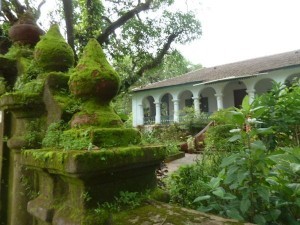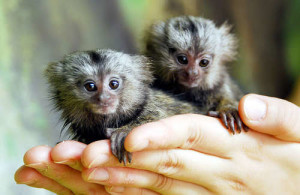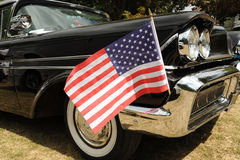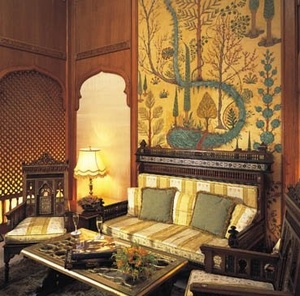Note: Our accounts contain the personal recollections and opinions of the individual interviewed. The views expressed should not be considered official statements of the U.S. government or the Association for Diplomatic Studies and Training. ADST conducts oral history interviews with retired U.S. diplomats, and uses their accounts to form narratives around specific events or concepts, in order to further the study of American diplomatic history and provide the historical perspective of those directly involved.
Arriving at a new post and setting up your household and office can be quite a challenge, even for a Chief of Mission. For a first-time ambassador at a newly-opened African post, acquiring the fundamentals for survival while preserving diplomatic protocol might seem more like Mission Impossible. Melissa Foelsch Wells recalls her time as Ambassador in Guinea-Bissau (1976-77). She had just come from a tour in Rio de Janiero and had great expectations for her first experience at heading up an embassy and accepting the duties and perquisites of the office.
In the small post-colonial country, she encountered frequent black-outs, a food shortage, cramped quarters and - once her family arrived - a room full of monkeys, yet she survived it all to have a successful tour of duty and a distinguished diplomatic career.  This Moment was compiled from an interview by ADST with Melissa Wells begun in April 1991 and updated in April 2016. You can read the entire Moment on ADST.org.
This Moment was compiled from an interview by ADST with Melissa Wells begun in April 1991 and updated in April 2016. You can read the entire Moment on ADST.org.
WELLS: I arrived as the first ambassador to Cape Verde and Guinea Bissau by myself. My husband had to finish a project in the U.S. and he and our son Gregory - age 10 at the time - arrived several months after I did. We left our older son finishing high school in Rio, which is what he wanted to do.
We were setting up a post. They had no bureaus and I remember mentioning that I had no place to put my things, my underwear and so forth.
I was very glad to have it. So in my bedroom I had a filing cabinet, and I had one drawer for my undies, stockings, and things, another drawer for my tops and slips and things, and another drawer for something else.
My sitting room consisted of a refrigerator. I had a sofa and a chair... The refrigerator just sort of came with the room. I think it was U.S. Government stock. It didn't come with the hotel management... I was very glad it was there. That was my food supply, because there was nothing to eat in the restaurants.
"Ca tem. Ca tem." [Creole for "Don't have any."] Every time you'd go in, they'd tell you they don't have anything. We would get supplied either from Dakar, people would bring food, chocolate bars, things like that, or else you would find eggs, maybe. The refrigerator was a very important thing to have, but it was a big refrigerator and took up a lot of space.
We had just recently had the flying commissary of West Africa, where you put in your order and you order so many cans of olives and things like that. Anyway, I hadn't been there long enough to have any orders of anything, so people gave me things until I put my order in. The lights were out again and had been out for a couple of hours, and the pumps weren't working, so you couldn't take a shower; there was no water. I had a little flashlight and I got to the refrigerator, because with the window, there was a little more light than in my office, but it was dark.
The lights were out again and had been out for a couple of hours, and the pumps weren't working, so you couldn't take a shower; there was no water. I had a little flashlight and I got to the refrigerator, because with the window, there was a little more light than in my office, but it was dark.
Then I found this can of olives, which I had opened earlier at some point. I sat there. I had opened the can, but the lid was sort of down. I remember these were big, ripe California olives, and I ate the whole can. This is the life of an ambassador!
Because I remember when they telephoned when I was in Rio de Janeiro to say, "Can we put your name on the list [to be nominated as ambassador to Guinea-Bissau]?"
And I said, "Wait, wait. I want to talk about it."
I went to talk to my friend Myles Frechette, who is just now ambassador in the Cameroon. Myles happened to be there, and I told him what had just happened. We went down to have coffee, and Myles said, "You're going to live in one of those old Portuguese beautiful colonial buildings!"
I could just see my beautiful old, rambling building, you know, with vines. And here I am, in the heat, in the dark, eating olives!
It was when [son] Gregory arrived that all these animals invaded my life. We started with one gerbil that we kept in a cage in our motel/residence. With one person living there, the challenges to be faced were more or less manageable. But with three of us AND the gerbil, it became very tricky.
I had already found a house that we were going to rent as the ambassador's residence. It was a very modest house - nothing grand - and was next door to the only undertaker in Bissau. But we had to wait for some repairs and painting to be finished before moving in. So we had a couple of weeks in the cramped quarters.
In Bissau in those days you would frequently see monkeys for sale by the road. And of course Gregory wanted a monkey. So a cage for the monkey and one more tenant in our motel quarters. Then, a few days later, he learned - not from me, I assure you! gerbil-standing- that these monkeys, they were small monkeys and rather cute, were being sold as food - they cook and eat the monkeys. Well, you can imagine how upset Gregory became! He was so upset, crying and angry, and rational explanations about differences in culture were to no avail. So we had to buy every monkey that we saw being sold! Between the one gerbil and the monkeys, I think we had a total of five cages in our small living room.
Well, you can imagine how upset Gregory became! He was so upset, crying and angry, and rational explanations about differences in culture were to no avail. So we had to buy every monkey that we saw being sold! Between the one gerbil and the monkeys, I think we had a total of five cages in our small living room.
Fortunately, a friend who was working on a project for UNDP in Bissau had a house with a large garden. He graciously, and with Gregory's consent, took the monkeys and Gregory would visit them regularly. We moved next to the undertaker with only the gerbil.
Calling on the Dean of the Diplomatic Corps: "May I show you my bed?"
We were really destined for each other, the Egyptian ambassador and I. This was in Guinea-Bissau. I started to make my calls on the members of the diplomatic corps. The Dean of the Diplomatic Corps [a title given to the longest-serving ambassador to a country] at that point in time was the Egyptian ambassador, a charming man who had been there since shortly after they became independent.
When I got there, I lived, as did many other diplomats, in the former Portuguese officers' quarters. They had an officers' club, and this was turned into a hotel. It looked like a motel. Everything is one level. You've got to get this picture here. It's not a high rise or anything.
Then all the rooms were the same. There was a little sitting room, a tiny little thing, a bedroom, and then a bath. Then a little pathway out in the road going up and down this place. I lived there, the Cuban ambassador lived there, and So-and-so lived there. We were all over the place. The cars would come with their little flags and things, rather cute, everybody waiting for a house to become available and into which to move.
So I'm going to call on the Dean, who is the Egyptian ambassador, and he happens to live in the same place, in spite of all these years that have gone by. It was rather depressing for the rest of us that the Dean is still living in this place. But there were other reasons. He never was able to find the house that he wanted.
So the secretaries called each other and made the appointment, and I had met him very briefly. So on an appointed afternoon I'm supposed to go, and I know where he lives. He's just across on the other side of this motel arrangement, eight doors down. I thought, "Should I walk down? No! Why not take the official car?"
It has a flag on it. I get into the car.
I could see, as I'm driving down the motel here, as I climbed in, they must have been peering out the window watching my door, because the butler comes out in his starched white coat. Just as I climb into the car, the butler comes out, because it's going to be one minute later and I'm going to be there. We even turned around to take up a little more time, and then he opened the door.
I got out, I walk in, and just as I approach the door, the front door opens of this little motel room, and the Egyptian ambassador is there. We shake hands and say hello, and I step inside, and it is very different from my quarters, because he has carpets going up the walls. Oh, beautiful carpeting!
Lovely carpets, much too large for this room, but he didn't fold them over because he had to put furniture in, so they were sort of going up the walls. [Laughter] Not all the way to the ceiling...I mean, it was like stepping into a different world. Egyptian furniture.
Stepping into the Arabian Nights, I could smell coffee that was being prepared, and a butler. It was incredible! He lived in exactly the same dimensions, the same place, and look what he's done!
Then he was so excited because of a certain event that had taken place that morning, he said, "Before you sit down, Madam Ambassador, may I show you my bed?"
The bedroom is right there. There isn't even a door; it's just an archway, you see. He took me in and he showed me the bed, and I knew why he was so excited, because there was a dearth of good mattresses in this hotel, and obviously he had been there long enough... He knew every bed, mattress, box spring, in that compound, and he knew when somebody was moving out, and he said, "I want that."
It was exactly like everybody else's bed, except...it had good springs. I had twin beds in my bedroom, and one of them was ghastly. I mean, the mattress was shot. It was terrible. The other one was all right. Anyway, so that was that.
Then comes the return visit, you see. The person who arrives calls on the Dean, and then the Dean comes back and returns the call. Supposedly, under this protocol system you get to know each other. His secretary called to say that he would like to make an appointment to call on Ambassador Wells. Now the Egyptian ambassador is going to return the visit.
Carol Hazzard, my secretary, made the arrangements. I remember clearly. She had heard a detailed description of my visit and she said, "Well, we have to offer coffee." We don't have fancy metal containers and all these things. You know how they do it up. But we had a nice little coffee set, cheese and crackers.
My office, for security reasons, had no windows. In Bissau, the electricity was going out fifteen times a day; no electricity, no air conditioning, no lights. The phones don't work. You just have to get used to it. On the bookcase I had a candle and matches. I had left them there; I forget why. They should have been on my desk, but they weren't. So the ambassador comes, sits down, and we start to talk. Carol brought in the coffee and put cream in it.
Then-BOOM!-pitch black. Since there's not a window in the room, it is pitch black. I said, "Oh, here it goes again. Now, don't get up. Don't get up." I get up in the dark, because these power outages are not just two or three minutes long and because I know that Carol, next door, is in the same situation.
She has a sliver of a window in her room, but she can't help me, either, in terms of opening the door and letting that sliver of light in.
So I said, "Don't get up, Mr. Ambassador. Don't get up." I am going around the desk, and I figured it was safer to get down on all fours, because otherwise I would fall on top of him. I wasn't quite sure where he was. It was pitch black.
I am going around the desk, and I figured it was safer to get down on all fours, because otherwise I would fall on top of him. I wasn't quite sure where he was. It was pitch black.
So I was down here. He feels me down here, you see, on the floor.
"Ambassador, don't move! I'm going to get the candle."
I bumped into him, and then I found it immediately. I lit the match, and he realized what I was doing...
We became very good friends...He gave me a lovely silver tray when I left, and we tried to get in touch with him in Cairo. We missed him when he was there. We kept in touch after that.
